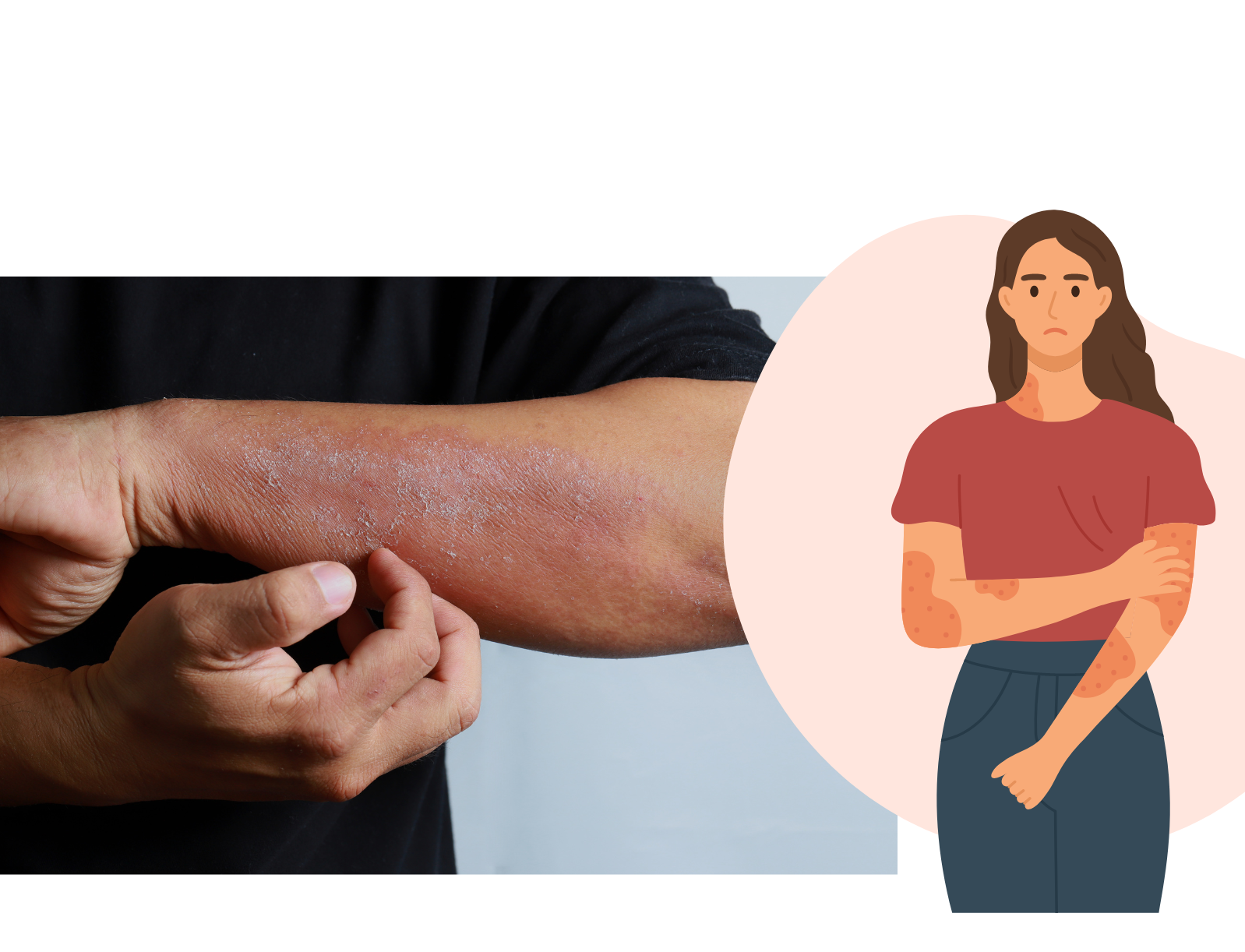Eczema

What is eczema?
Eczema, also known as atopic dermatitis, is a chronic skin condition that causes dry, itchy, and inflamed patches of skin. Eczema can occur at any age, but it is more commonly diagnosed in children.
Who's at risk for eczema?
Eczema can affect people of all ages, races, and ethnicities, but it is more commonly diagnosed in people who have a family history of the condition or other allergies, such as asthma or hay fever.
What causes eczema?
The exact cause of eczema is unknown, but it is believed to be related to a combination of genetic, environmental, and immune system factors. People with eczema may have a weakened skin barrier, which can allow irritants and allergens to penetrate the skin and trigger an immune response.
How does eczema start?
Eczema may start with symptoms such as dry, itchy, and inflamed patches of skin, which may worsen with exposure to certain triggers, such as harsh soaps, fabrics, or weather conditions.
What are the symptoms of eczema?
The symptoms of eczema may vary depending on the type and severity of the condition, but may include:
- Dry, itchy, and inflamed patches of skin
- Redness and swelling of the affected area
- Crusting, scaling, or thickening of the skin
- Blisters or oozing lesions
- Skin discoloration or darkening
How is eczema diagnosed?
Diagnosing eczema involves a physical exam of the affected skin and may also involve tests to rule out other skin conditions, such as psoriasis or contact dermatitis. A healthcare provider may also perform allergy tests to identify potential triggers that may be contributing to the eczema.
How can eczema be treated?
Treatment for eczema may involve a range of interventions, including:
- Moisturizers and topical corticosteroids, which may help reduce inflammation and relieve itching
- Oral antihistamines or topical calcineurin inhibitors, which may help manage itching and inflammation
- Light therapy or phototherapy, which may help reduce inflammation and improve symptoms
- Biologic drugs, which may help manage severe eczema that does not respond to other treatments
What complications may occur with eczema?
If left untreated or poorly managed, eczema can lead to a range of complications, including:
- Skin infections, which may occur when bacteria or other pathogens enter the skin through open wounds or lesions
- Sleep disturbances, which may occur due to itching and discomfort
- Psychological or emotional issues, such as anxiety or depression related to the impact of eczema on quality of life
How can I prevent eczema?
Preventing eczema involves making healthy lifestyle choices and avoiding known triggers, such as:
- Avoiding harsh soaps, detergents, and other irritants
- Moisturizing the skin regularly to prevent dryness and cracking
- Avoiding exposure to extreme temperatures or weather conditions
- Identifying and avoiding allergens that may trigger eczema flares
Long-term management of eczema
Managing eczema over the long term involves ongoing monitoring of symptoms, regular healthcare provider visits, and following a treatment plan as prescribed by a healthcare provider. It may also involve making lifestyle changes to prevent eczema flares and participating in ongoing therapy or support groups to manage underlying psychological or emotional issues.
What is recent research saying about eczema?
Recent research in eczema has focused on developing new treatments and therapies to improve outcomes and prevent complications. Some of the promising areas of research include:
- Microbiome-based therapies, which involve targeting the skin microbiome to help reduce inflammation and improve skin barrier function
- Biologic drugs, which may help manage severe eczema by targeting specific immune system pathways that contribute to the condition
- Nutritional interventions, such as probiotics or dietary changes, which may help improve skin health and reduce inflammation
Where can I go for more information on eczema?
If you or someone you know has been diagnosed with eczema, it is important to seek help from a healthcare provider who specializes in the treatment of the condition. The following organizations also provide information and resources on eczema:

